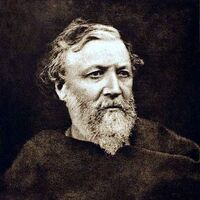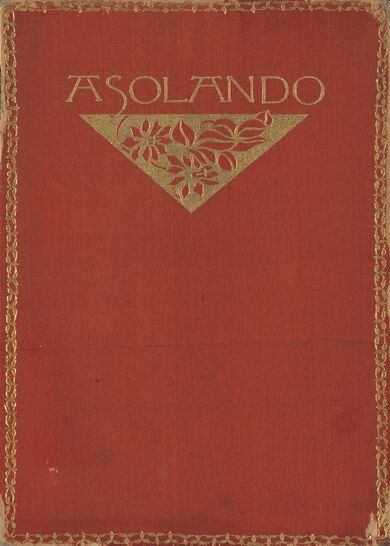Inapprehensiveness
We two stood simply friend-like side by side,
Viewing a twilight country far and wide,
Till she at length broke silence. “How it towers
Yonder, the ruin o’er this vale of ours!
The West’s faint flare behind it so relieves
Its rugged outline—sight perhaps deceives,
Or I could almost fancy that I see
A branch wave plain—belike some wind-sown tree
Chance-rooted where a missing turret was.
What would I give for the perspective glass
At home, to make out if ’tis really so!
Has Ruskin noticed here at Asolo
That certain weed-growths on the ravaged wall
Seem” . . . something that I could not say at all,
My thought being rather—as absorbed she sent
Look onward after look from eyes distent
With longing to reach Heaven’s gate left ajar—
“Oh, fancies that might be, oh, facts that are!
What of a wilding? By you stands, and may
So stand unnoticed till the judgment Day,
One who, if once aware that your regard
Claimed what his heart holds,—woke, as from its sward
The flower, the dormant passion, so to speak—
Then what a rush of life would startling wreak
Revenge on your inapprehensive stare
While, from the ruin and the West’s faint flare,
You let your eyes meet mine, touch what you term
Quietude—that’s an universe in germ—
The dormant passion needing but a look
To burst into immense life!”
“No, the book
Which noticed how the wall-growths wave,” said she,
“Was not by Ruskin.”
I said, “Vernon Lee.”


